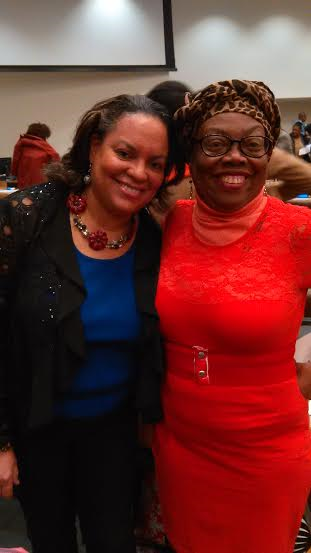ALDWYN ROBERTS LORD KITCHENER APRIL 18-1922
Murphy Browne © April 16-2024
“I can’t stand the cold in winter
I want to buy an incubator.”
From the calypso “The Cold In Winter” by Aldwyn Roberts, the Lord Kitchener.
Aldwyn Roberts, the Lord Kitchener, was born on April 18, 1922, in Arima, Trinidad and Tobago. Aldwyn Roberts, better known as Lord Kitchener or “Kitch”, is regarded as the “Grandmaster” of calypso music. Calypso originated on the plantations of Trinidad in the 17th century at a time when social interaction of enslaved Africans was banned. Calypso became an important means of communication to share news and to protest. Enslaved Africans sang about their desire for freedom and to warn other enslaved Africans of impending danger. They covertly and overtly protested their enslavement.
Calypsonians with their evocative and witty singing style, and sometimes satirical, scathing, and provocative lyrics, have educated and entertained for centuries. Music was an avenue for enslaved Africans to express their feelings. The calypso was used even after slavery was abolished, to voice grievances against colonial overlords and even government after independence.
Calypsos were also used to criticize and mock those in political power. Calypsonians risked much to speak out for working class citizens as they criticized the powerful. African Trinidadian historian Errol Gaston Hill, thought that “Calypso originated in West African griots and developed alongside other traditional Caribbean songs to incorporate ‘elements of digging songs changed by people at work; belair and calinda songs when they play; shango and shouter baptist revival songs when they worship; and insurrectionary songs such as were sung by slaves in revolt.’” As Hill pointed out "The one great leveller was the calypsonian. He sang with courage and wit, debunking and defending the small."Music has sustained Africans dealing with myriad oppressions. Enslaved Africans used various means, including music, to protest and resist their enslavement. They sang songs to arrange secret meetings and songs which encouraged escape and sabotage. Oral history passed from generation to generation was always part of sustaining culture which included storytelling and songs. From this history of storytelling, music and dance as a way to sustain the African culture, came various forms of music including calypso. Calypso is one of several musical genres with roots on the African continent. Calypso is a popular Caribbean genre of music that was created by Africans enslaved in the Caribbean. Calypso is resistance music. African Caribbean scholars have opined that “The calypso, which has attained its highest form of expression in Trinidad, is recognized as a re-interpretation of a traditional African topical song.”
On June 21, 1948, the 26-year-old calypsonian Aldwyn Roberts/Lord Kitchener introduced calypso to the British Isles when he arrived at Tilbury Docks on HMT Empire Windrush. Kitch was featured on the documentary of the arrival of the ship Empire Windrush. He introduced himself to British audiences by singing “London is the Place for Me” a calypso that expressed the hopes and dreams that many of the excited Windrush passengers likely felt as they landed in the UK.
It’s a shame it’s unfair but what can you do
The colour of your skin makes it hard for you…
If you brown they say you can stick around
If you white well everything’s all right
If your skin is dark, no use, you try
You got to suffer until you die.”
“A ha my first misery, is when I embark at Piccadilly,
I went down below, I stand up in the crowd don’t know where to go.
I decided to follow a young lady, well I nearly met with my destiny,
That night was bad luck for Kitchener, I fall down on the escalator.”
Perhaps by 1957 Kitch had embraced Pan-Africanism after living in London for almost a decade in a racist culture. He released “Africa, my home” in 1957, acknowledging/embracing his African ancestry.
https://www.youtube.com/watch?v=7LXKWYrKYcA
In 1957 when Ghana became an independent nation Kitch sang:
“The national flag is a lovely scene, with beautiful colours red, gold and green,
And a black star in the centre, representing the freedom of Africa.
Ghana, Ghana is the name Ghana we wish to proclaim,
We will be jolly, merry and gay, The sixth day of March, Independence Day.”
In 1962, Lord Kitchener returned to independent Trinidad and Tobago. Kitch lived the rest of his life in Trinidad and Tobago, where he was very influential in the world of calypso. He transitioned to the ancestral realm on February 11, 2000, Trinidad and Tobago. The Lord Kitchener of calypso has been honoured in the UK and in Trinidad and Tobago. He has been honoured with two statues in his home country: one in Arima and another in Port of Spain. His former home, Rainorama Palace, is a museum, an auditorium is named after him in the National Academy for Performing Arts in Trinidad and a street in Arima named Lord Kitchener Avenue. In 2023 he was honoured in the UK with a plaque placed at his former UK home site. The calypso legend Aldwyn Roberts/Lord Kitchener would have been 102 years old on April 18-2024.
Murphy Browne © April 16-2024






































